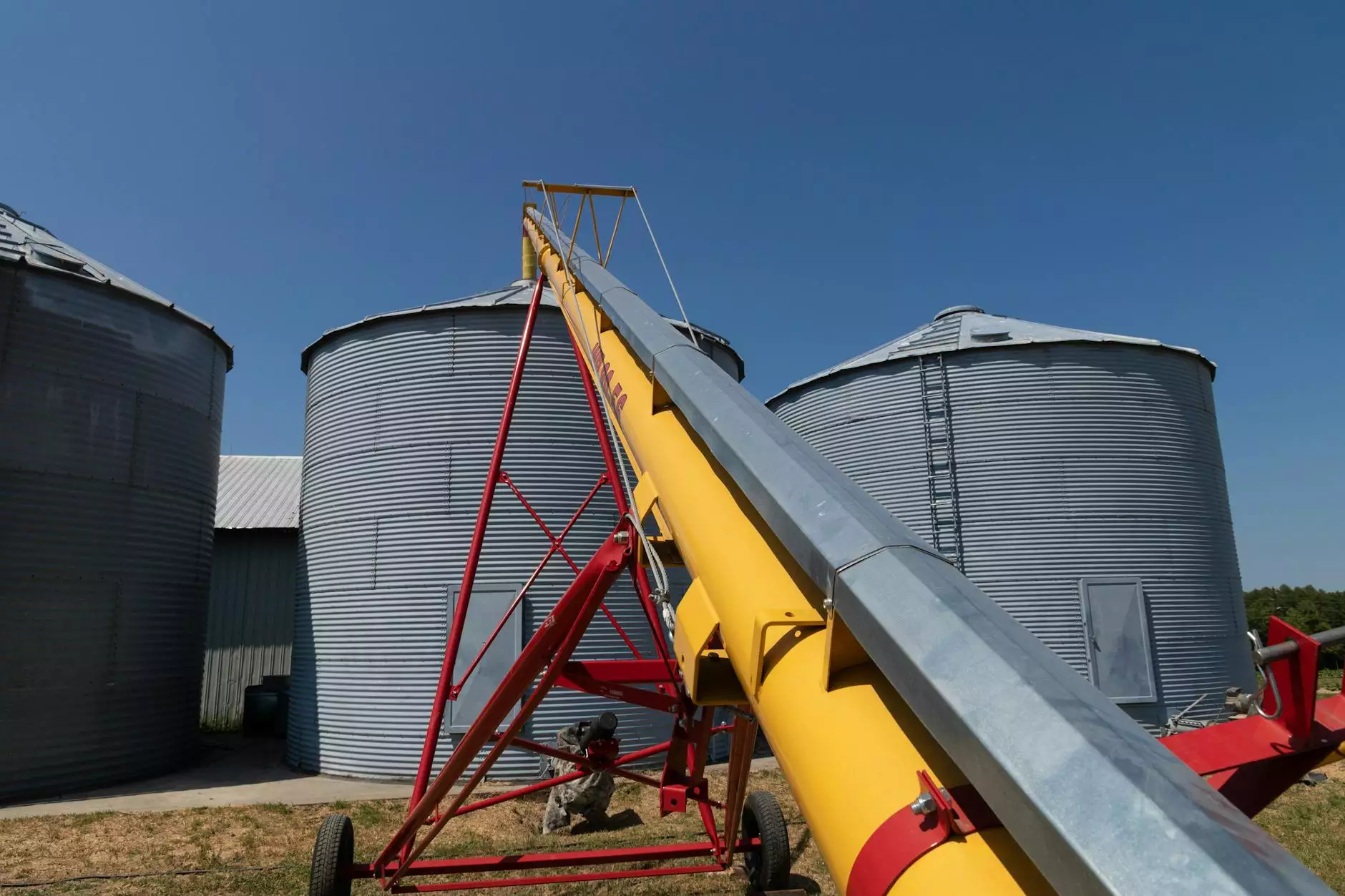The Importance of Silo Grain in Modern Farming

Silo grain storage has become an indispensable component of modern agricultural practices. This article explores the vital role that silo grain plays in farming, focusing on its benefits, maintenance, and how it integrates with farming equipment repair and modern farming technologies.
Understanding Silo Grain Storage
One of the primary reasons farmers invest in silo grain systems is to safely store their harvested crops. Silo systems are designed to hold grain in bulk, protecting it from environmental factors that could lead to spoilage. These structures are crucial for providing ideal conditions that maintain the grain's quality over time.
Types of Silo Grain Storage
- Concrete Silos: Known for their durability and long lifespan.
- Steel Silos: Often used for their resistance to weather conditions and pests.
- Fabric Silos: These offer flexibility and ease of installation, often used for temporary storage.
- Bunkers: These are simpler in design and can hold large amounts of grain with ease.
The Advantages of Using Silo Systems
Utilizing silo systems for silo grain storage offers numerous benefits, enhancing the overall efficiency of farming operations:
1. Protecting Grain Quality
One significant advantage of silo systems is their ability to protect grain from moisture, pests, and diseases. By maintaining optimal storage conditions, silos help farmers avoid substantial losses.
2. Efficient Space Usage
Modern silos are designed to maximize storage capacity, allowing farmers to store a larger volume of grain in a smaller footprint. This efficiency is paramount for optimizing farm layout and equipment use.
3. Ease of Access and Management
With proper silo grain structures, farmers can easily access and manage their grain supply. Automated systems and digital monitoring technologies integrated with silos provide real-time insights into grain conditions, enabling timely interventions when necessary.
4. Cost Efficiency
Investing in silo grain storage reduces transportation costs and minimizes the need for off-site storage solutions. Furthermore, good storage practice extends the shelf life of grain, making it more economical in the long run.
Farm Equipment Repair and Maintenance
To ensure the effectiveness of silo systems, regular farm equipment repair and maintenance are crucial. The machinery used for transferring grain, such as augers and conveyors, should be kept in top condition to prevent any disruptions in the workflow.
Best Practices for Farm Equipment Maintenance
- Regular Inspections: Schedule routine checks on all equipment to identify any wear and tear.
- Timely Repairs: Address issues immediately to prevent more significant problems from developing.
- Cleaning Equipment: Keep machinery clean to avoid contamination and maintain efficient operation.
- Training Staff: Ensure that all staff are trained to operate and maintain equipment safely and effectively.
Integrating Technology with Silo Grain Storage
The future of farming involves integrating advanced technologies into the silo grain storage process. Smart farming solutions drastically improve management efficiency and operational sustainability.
Automation
Automation technologies, including robotic systems for loading and unloading grain, reduce labor costs and increase efficiency. Automated monitoring systems track grain quality and inventory levels, ensuring the farmer is always in control.
Remote Monitoring
With IoT (Internet of Things) devices, farmers can remotely monitor their silo systems from anywhere. Real-time data on moisture levels, temperatures, and potential infestations helps in making informed decisions swiftly.
Environmental Considerations of Silo Grain Practices
Environmental sustainability is becoming increasingly important in farming. Efficient silo grain storage helps minimize waste and supports sustainable land use practices.
Minimizing Waste
Proper silo management practices minimize spoilage and waste, allowing farmers to leverage every bit of their harvest.
Using Renewable Energy
Many farmers are now looking at renewable energy sources, such as solar panels, to power their silo systems, further contributing to environmental sustainability.
Conclusion
In conclusion, the role of silo grain storage in modern agriculture cannot be overstated. It enhances grain quality, optimizes space usage, and ensures cost-efficiency while also integrating cutting-edge technologies. As farmers embrace sustainable practices and maintain their equipment, the benefits of silo systems will continue to grow, pushing the boundaries of what is possible in farming.
For high-quality farm equipment repair and innovative silo grain solutions, visit tsgcinc.com and find the best options tailored for your farming needs.









